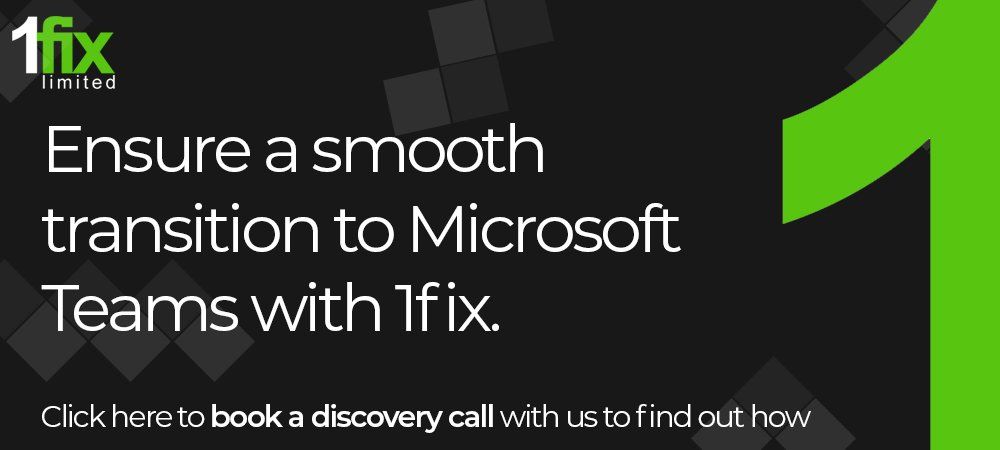Microsoft Integrates Dynamic 365 And Teams Even More
Microsoft Integrates Dynamic 365 And Teams Even More
Last week, Microsoft held its annual Inspire conference and announced many new features and collaborations. My first blog of the Inspire event covered Microsoft’s new DaaS platform Windows 365. Now, I want to cover Microsoft’s changes to its collaboration application Teams.
Teams is Microsoft’s workspace collaboration hub for Microsoft 365. It came out in 2017 and was made available for free by Microsoft a year later. Back in 2017, I saw Teams as a needed response to Slack, Cisco Teams (now just “Webex”) and Google Chat (Now part of Workspaces), and when Covid hit, Zoom.
Since then, it has grown seven-fold from 20 million active users to over 145 million active users in 2020. While I sometimes question Teams simplicity and speed, I think the spike in adoption for Teams is well deserved, as the company isn’t stopping at chat and video. It turned Teams into a full-blown enterprise application platform.
Microsoft continues to pour more and more into Teams, and last year it integrated Microsoft’s Power Platform and Dataflex. Power Platform enables customers to build no-code/low-code bots, analyze data, automate processes, and more, and Dataflex is Power Platform’s data platform.
With these integrations, it is no surprise to me that Microsoft is integrating Dynamic 365 more and more into its platform. Let’s dive into Dynamic 365 in Teams and the implications it brings in digitally transforming the way we work together.
Teams as an enterprise platform
At Microsoft’s Ignite event earlier this year, it announced the integration of Dynamics 365. Teams integration into Dynamic 365 workspace to place calls, start or continue chats, hold meetings and collaborate, and more. It also included some integration of Dynamic 365 content within Teams.
I think Microsoft is doing a decent job of putting communication and personal messaging capabilities at the center of its Dynamic 365 Platform. It had to have an immediate response to Slack and Zoom and this was it. Microsoft wasn’t done and wanted to make Teams a platform.
What’s new from Inspire
Many of Microsoft’s announcements for Dynamics 365 and Teams integration at Inspire 2021 continue what it announced at Ignite earlier this year. In integrating Dynamic 365 into Teams, Microsoft eliminated the licensing “tax” for Dynamics 365, and a license is no longer needed to use the Dynamic 365 services inside Teams.
Eliminating the licensing for Dynamics 365 in Teams will open up Dynamic 365 to more organizations and pull together Teams as a collaboration hub. Microsoft is not giving Teams’ 145 million user base any reason to not use Dynamic 365.
Microsoft says Dynamic 365 users can invite anyone in the organization to view and collaborate on customer records right within the flow of a team chat or channel. Microsoft also says Dynamic 365 users can add Teams meetings to appointments and capture notes within a Teams call, which also saves the notes in the timeline of the Dynamic 365 record.
I see these features being key in bringing clarity to collaboration as different LOBs (Line of Businesses) connect with customers and with each other. Rather than having multiple places to put information, it is all integrated and centered under one productivity workflow. Microsoft has tweaked notifications in Teams and Dynamic 365 by showing users when colleagues have made changes. It also lets users change notifications in chat channels, including notifications and adaptive cards based on the notification type.
From my experience with notifications on different platforms is they can be redundant and difficult to manage. I like how Microsoft is tweaking notifications to be personal while maintaining the helpfulness of notifications. I’ll have to try it out myself to provide a definitive verdict.
Increasing collaboration between Teams and partners
Microsoft’s integration of Dynamic 365 into Teams is one of the many ways that Microsoft is working to integrate intelligent business processes into Teams’ collaboration and communication platform. Microsoft is working with various partners to bring their applications into the collaboration hub of Teams.
With the growth of teams over the past few years, from 20 million to 145 million, the collaboration that Microsoft is putting forth with its Dynamic 365 and Teams, and eliminating licensing fees for Dynamic 365, Microsoft is putting together a very powerful business platform.
Microsoft also announced it is lowering the fees for applications published on AppSource and Azure Marketplace from 20% to 3%. I believe this announcement is great news for its partners that will develop collaborative applications for Teams and for new organizations that take advantage of Microsoft offering Dynamic 365 without a license. I will be surprised if I don’t see more healthy and higher growth behind Teams and Dynamic 365 between Microsoft and its partners within the next year.
Wrapping up
Industry-wide, chat is no longer just chat. Microsoft, Google and now Salesforce with Slack is turning chat into full-blown enterprise platforms. While I think most would agree that Microsoft was “late” with a chat that users wanted to use (Teams), it came out of nowhere into a leadership position.
Technically, it delivered Teams to more countries with more security certificates than Slack which made a huge difference. Making Teams “free” as part of large license deals helped. I don’t over-rotate on the “free” part as no enterprise would deploy a product they thought was “bad” even if it were “free.”
Microsoft’s synergy between its collaboration hub Teams and its business application platform Dynamic 365 is a good strategic move and I think valuable for enterprises. I think Microsoft is doing a decent job at adapting both platforms together amid the digital transformation of the business world. Hybrid work is becoming more collaborative and integral in business workflows across the enterprise.
Ensuring your systems are secure – 1-Fix.
Our team of specialists at 1-Fix offer a range of business IT services ranging from desktop and server management, to network design and cyber security assistance. Our experts want to become a vital member of your team and help you strengthen the capabilities of your IT systems. We can help you achieve a level of security that allows you to feel confident 100% of the time that you are not going to fall victim to a cyber attack whilst utilising everything your IT landscape has to offer. Please do not hesitate to contact the 1-Fix team for a conversation on any aspect of your IT.
Source:
https://www.eweek.com
Join Our Mailing List
All sign-ups are handled inline with our privacy policy and can unsubscribe at any time.























